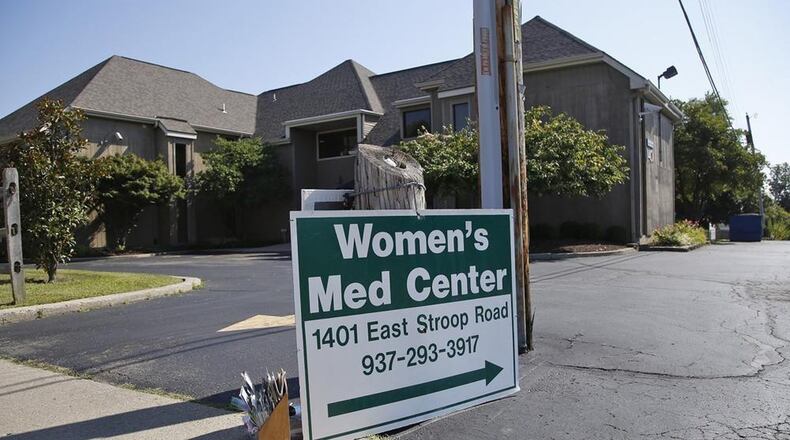“Compliance with SB 27 will have a devastating impact on the ability of patients to have autonomy over their own lives,” Freda Levenson, legal director for the ACLU of Ohio, said in a news release. “The effect of the law will be to delay procedural abortions forcing patients to carry an unwanted pregnancy for weeks or months, and then to undergo riskier and more expensive procedures. Finally, the law imposes a funeral ritual on every patient, regardless of their own religious and spiritual beliefs.”
Meanwhile anti-abortion groups celebrated the impending new requirements, with Ohio-based Created Equal anticipating it will be impossible for abortion providers to meet.
“Laws requiring aborted babies to receive a dignified final disposition in some ways pose a bigger threat than many abortion bans do,” said Mark Harrington, founder and president of Created Equal, said in a news release.
According to the Ohio Legislative Service Commission, SB 27 leaves the choice of interment or creation up to the abortion patient; by their parent or guardian, if the patient is under age 18; or by the abortion clinic if the patient does not choose.
The clinic must pay for cremation or interment at a location specified by the clinic, unless the patient chooses disposition through a service not provided by the facility. In that case, the patient must pay.
Of the 20,605 abortions in Ohio in 2020, nearly half were chemically induced non-surgical abortions. There were 10,792 surgical abortions performed in Ohio in 2020, according to the state Department of Health’s annual report.
The clinics in Montgomery and Hamilton counties provided 31.8% of those surgical procedures, according to the report: 1,570 in Montgomery and 2,408 in Hamilton.
Then-state Sen. Joe Uecker, R-Miami Twp., sponsored SB 27. He resigned from the Senate in August 2019 to take a job with the state Department of Transportation, but his bill went on to pass the General Assembly in December 2020. The law was to go into effect in April 2021, but the ACLU and Planned Parenthood, along with Ohio’s five abortion clinics, won a court injunction to delay its application until the state Department of Health adopted rules for compliance.
A month of public comments on the proposed fetal remains rule closed Sept. 19, and the Ohio Department of Health finalized it Dec. 30. The new rule became effective Jan. 9, but providers have until Feb. 8 to come into compliance.
Knowing violations of the new rule would be first-degree misdemeanors. Penalties could also include loss of professional and facility licenses and civil judgments up to $250,000, according to the ACLU.
The new requirements also conflict with other state laws, effectively serving as a de facto abortion ban until about 13 weeks of pregnancy, according to the ACLU. Elective abortion is outlawed in Ohio after 20 weeks of pregnancy.
“If an individual is forced to continue a pregnancy against their will, it can pose a risk to their physical and mental health, as well as to the stability and wellbeing of their family,” said Kersha Deibel, president and CEO of Planned Parenthood Southwest Ohio Region. “Furthermore, being prevented from having a procedural abortion will have a disproportionate impact on the lives of Black people, other people of color, and people with low incomes in Ohio. This law must be blocked.”
About the Author

